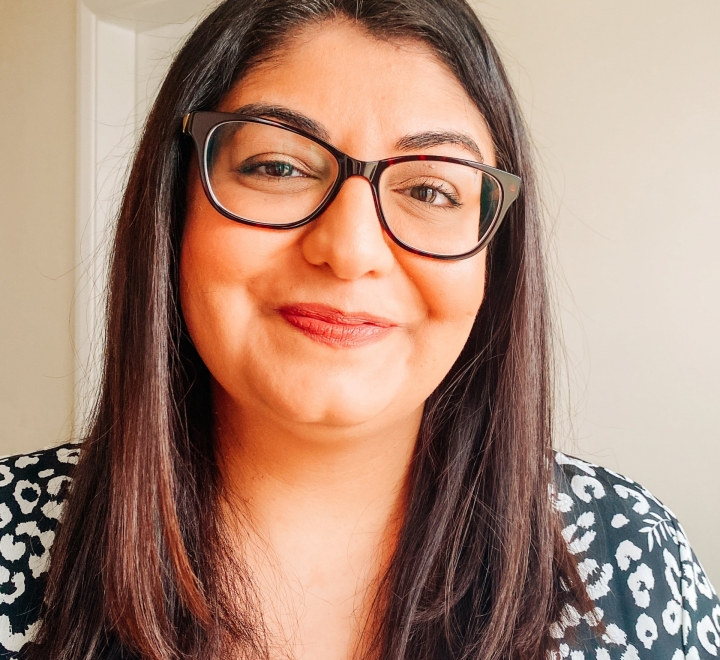
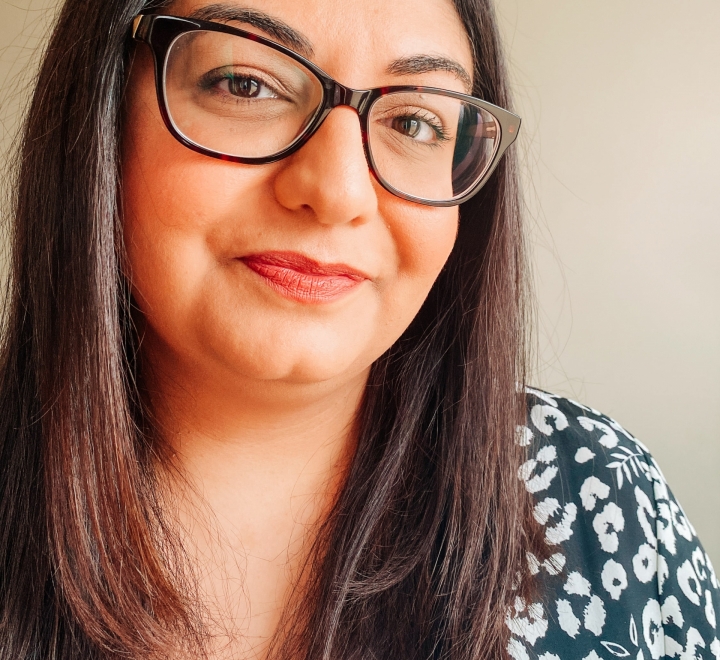
If there’s one thing Nisha wishes more people knew about nursing, it’s how far the profession has come. “It’s more than just bedpans and hand-holding,” she laughs.
Now that it’s more common for nurses to also be prescribers and run clinics, Nisha believes the extra development and specialism opportunities available have been great for both patients and nurses.
“Early on in my career, when I was shadowing doctors, I’d often find that patients waited for the doctors to leave before asking the nurses to explain a bit more because they didn’t want to look stupid or waste the doctors’ time. Now there’s more training available, we’re more able, as nurses, to really answer those questions.”
For Nisha, having a caring and empathetic nature is right at the core of what she does. “If you stop caring about people, it’s time to leave the job,” she says. She feels the training available to her has meant that she can now do that in more ways than just holding someone’s hand.
Now she’s a specialist, Nisha knows she can give patients all the support they need without always having to pass things over to a doctor, which allows her to provide a whole new level of care.
“The things I love the most are seeing patients on the ward steadily getting better or being able to give someone a diagnosis and seeing the relief that can bring.”
She relishes seeing how, for many patients, getting that diagnosis is a weight off their shoulders. “Getting that confirmation of a diagnosis means so much. It tells them they aren’t going mad or imagining their symptoms and means they can now start to treat and manage their condition correctly,” she explains. It’s the additional training she’s had that’s made these experiences all the more possible, giving her a real sense of achievement.
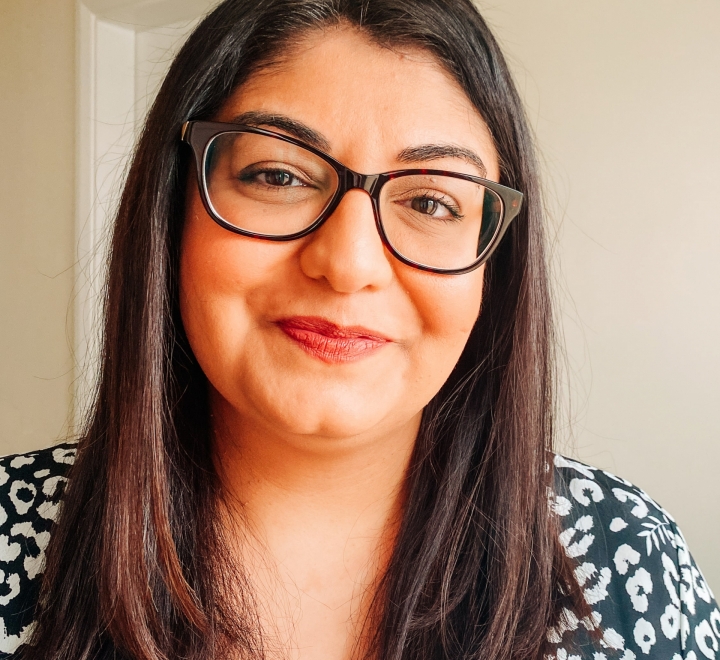
“The things I love the most are seeing patients on the ward steadily getting better or being able to give someone a diagnosis and seeing the relief that can bring.”
A change of perception
Nisha has noticed that, for some people, the perception of nursing is already changing. “Before, when I’d say ‘I’m a nurse’, I’d get ‘Oh that’s nice’ in response. These days I see a lot more respect and admiration for what we do.”
Nisha feels a lot of that has to do with the coronavirus pandemic. “I think the pandemic highlighted that we’re actually useful,” she laughs. For her, the most humbling thing to come out of this hugely testing time for nurses and medical staff is the recognition they’ve received for their contributions.
“We give so much in our jobs that it was so nice to get something back. Even something as small as a quiet ‘thank you’ from patients can really lift your spirits and make you realise that you are doing a good job.”
Nisha believes the other major contributor to this change in perception is the training that’s now available, which she feels has helped nurses do more and become more respected. “Nursing has become much more of a profession now. Before, it was a diploma which you could top up. Now, you need to study up to degree level before you can get a job. Plus, there are so many more specialist positions, from Specialist Nurses like me, to Advanced Nurse Practitioners (ANPs).”
Becoming a Specialist Nurse was one of the proudest moments of Nisha’s career so far. As someone who wasn’t always academically confident, reaching this significant career milestone gave her a huge sense of accomplishment. “It was really challenging, I had to go back to uni and start studying again. That’s something I would never have considered when I started eleven and a half years ago,” she explains. Now she’s able to run clinics and see patients independently, so she’s able to deliver the really hands-on care that she feels is key to being a good nurse.
“When I look back at what I’ve achieved I do think ‘Wow! That’s my job!’ I have a whole new set of skills now that I never dreamed I would have.”

Always ask questions
When asked for the best piece of advice she could give nurses just starting out in their careers, Nisha answers straight away – “Always ask questions.” She’s a firm believer in every day being a school day and knows from her own experience how helpful asking and talking about things can be. “I used to go home and read up on everything,” she explains. “But then I realised that most of the time I still wasn’t sure I’d got it right. Being able to chat about it really helps it stay in my mind and means I can be sure I fully understand.”
In fact, she gives the same advice to her patients too. She’d much rather them phone and ask her a question about their treatment or what they can and can’t do than get it wrong by trying to handle it themselves. “We’re always there for them – that’s our job!”
Nisha is keen to emphasise that there are no stupid questions, whether you’re a patient just beginning treatment, a nurse starting out on their career, or a seasoned pro. “We’re not superhuman,” she says. “You can’t be expected to know everything by yourself. I’m still learning now!”
Helping patients with the little things
When it comes to helping her patients, Nisha knows that sometimes a little goes a long way. “Often when people come into hospital, they’re scared and unsure,
that’s normal,” she explains. “I just look at a patient and think, if that were my mum, or my dad or my grandparent, how would I want them to be treated?” She knows that something as simple as a smile or taking the time to listen to a patient’s concerns can help them to feel happier and less anxious.
The coronavirus pandemic meant Nisha and her team had to adapt the way they offer these small helping hands to patients. Instead of seeing their patients, there were suddenly a lot more telephone or video consultations. Being able to keep in touch through regular calls not only meant she could keep up with a patient’s treatment, but also that patients knew they still had the support they needed.
For Nisha, the key message is always the same, whether she’s seeing patients in person or via technology. “We’re always at the end of the phone,” she says. “There are no stupid questions, if you’re not sure about something, just ask and we’ll do what we can to help.”
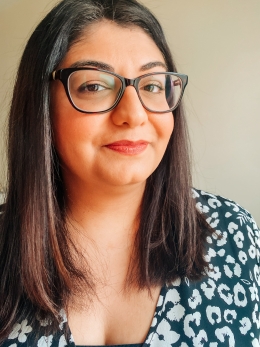
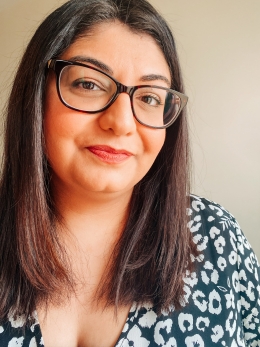
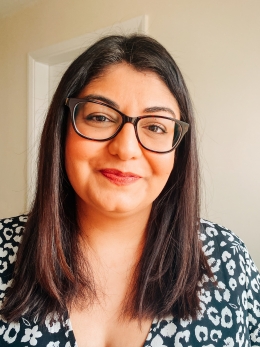

Nisha’s top picks
Books or TV?
TV, definitely. I love a good Netflix show with a glass of wine to help me relax at the end of the day.
Tea or Coffee?
Coffee definitely gets me through the day sometimes.
Early, late or night shift?
I like to be up and about in the morning, so I have my evenings free to spend time with family and friends.
On the ward, in practice or out in the community?
I’ve only ever worked on the ward, so I have to say that.
Summer or winter?
Summer, absolutely! I love the sunshine and being able to get outside with my nephews in the nice weather.
Related stories



Exploring the Clinical Psychology Service in a Community Respiratory Team
Read article
Interactive self-management: the programme supporting respiratory patients
Read article
Respiratory virtual wards – squaring the circle
Read article

